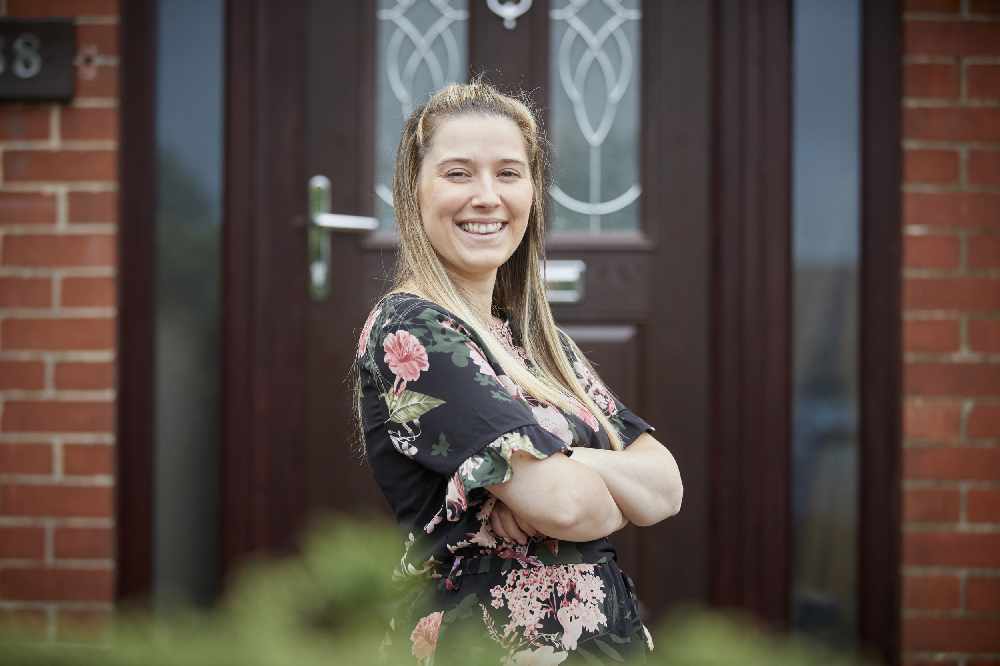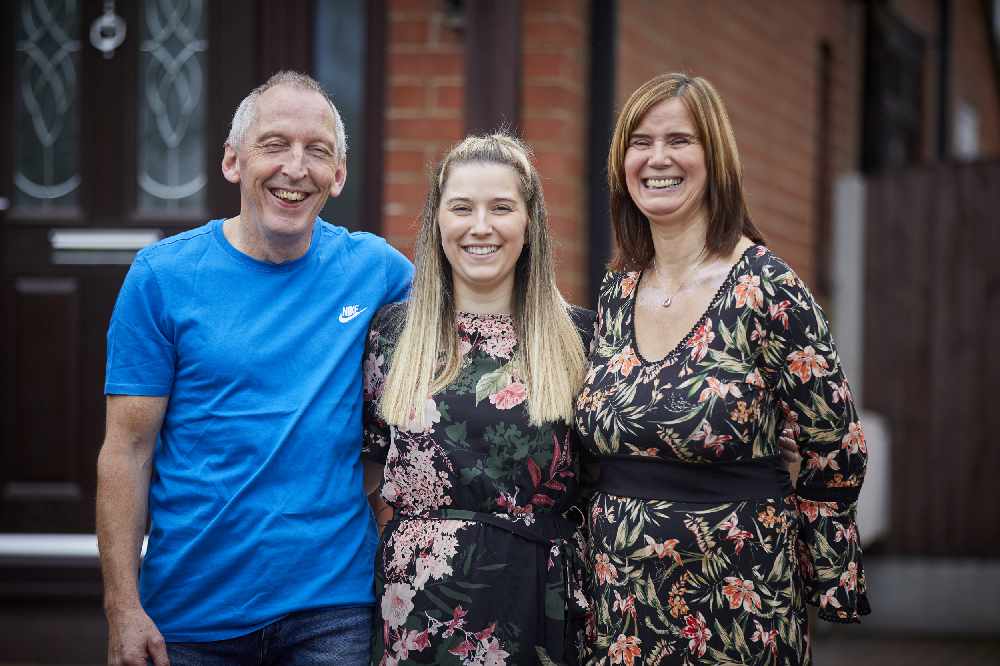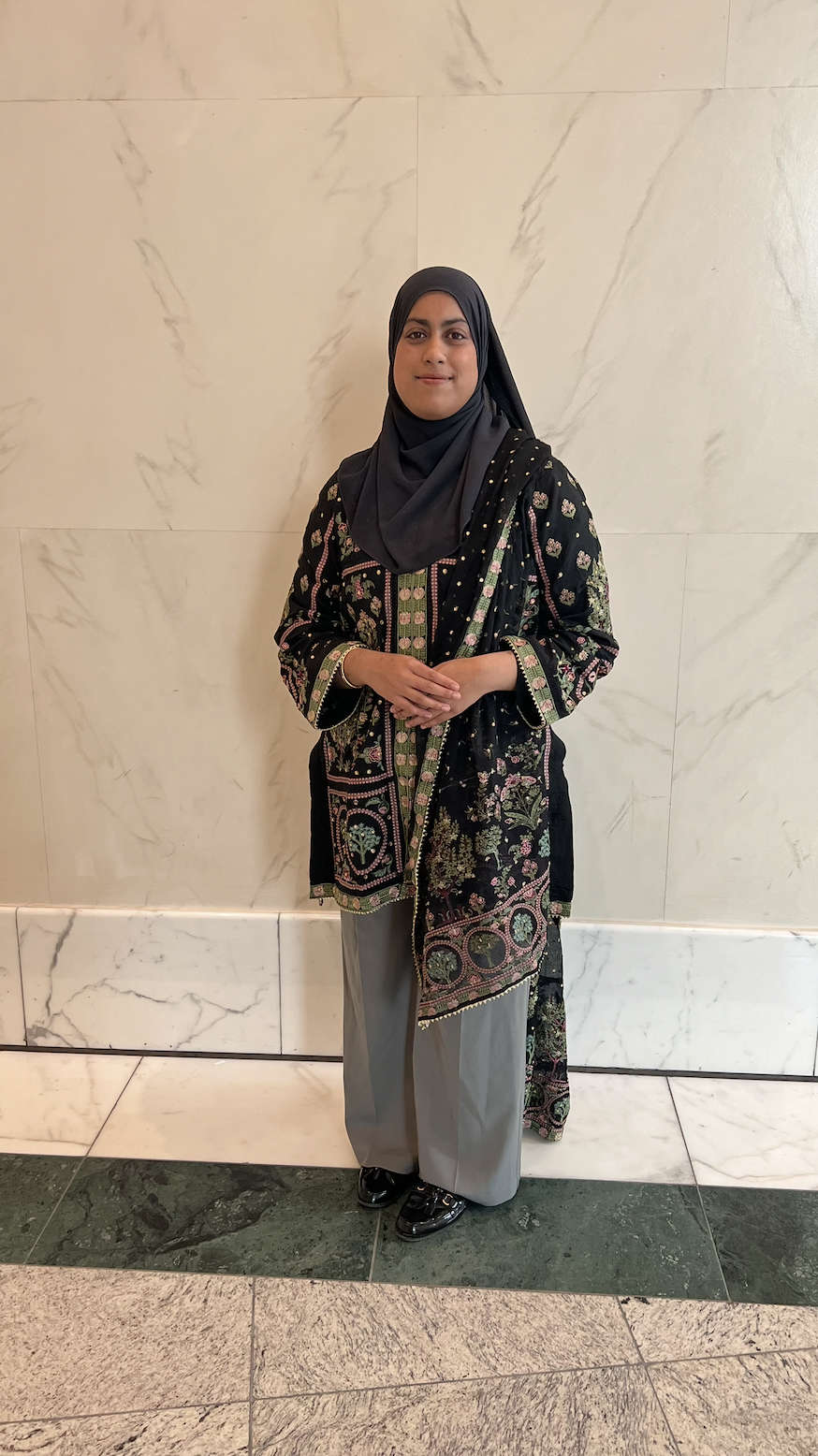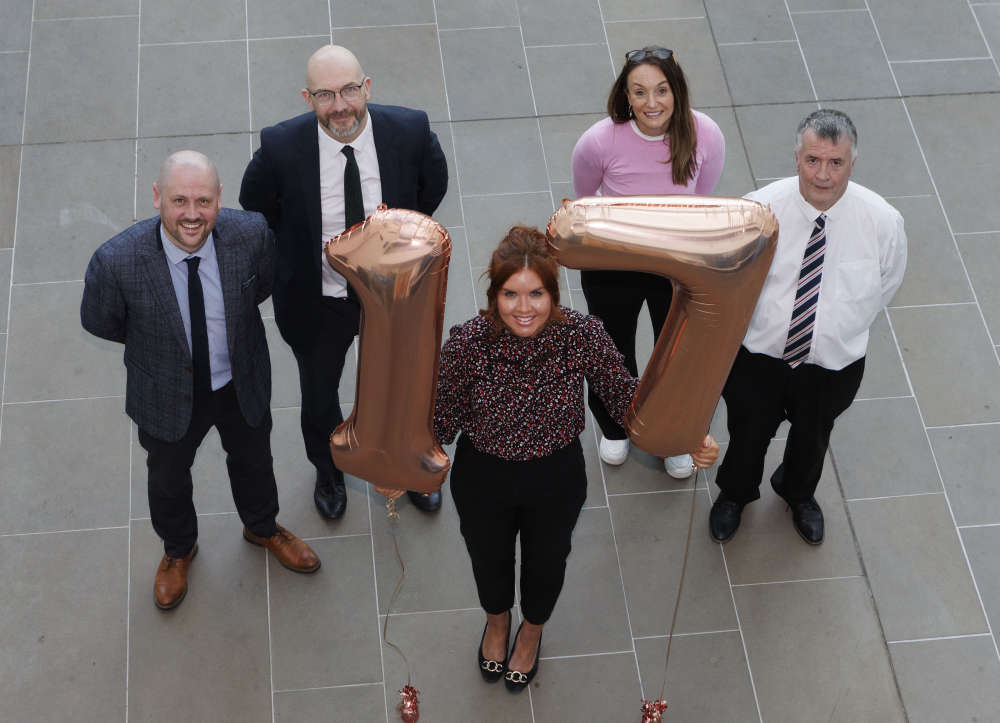
A young foster carer from Oldham is encouraging others to consider a career in fostering as under 25s in England face bleak employment prospects as a result of the coronavirus pandemic.
Around 20 per cent of 16-25 year olds work in the most at-risk industries, making them more vulnerable to redundancies and unemployment than any other age group.
Recent studies also show that millennials and Gen Zers in particular are looking to continue the flexible working hours and working from home established during lockdown.
With the continued increase in demand for foster carers across the UK to provide a safe home to children and young people in need, 27-year-old Becky Flanagan (pictured) is calling on other young people to think about fostering as a viable career option that offers stability, flexibility and progression opportunities.
Becky was a teenager when her own parents started fostering and now she is following in their footsteps, working as a respite carer to help foster families who look after children with disabilities.
In support of her parents’ decision to foster, Becky enrolled on a social care course at her local college to carry on her family’s legacy of making a difference in the community.
Becky applied to become a respite foster carer when she was just 21 years old in 2013 with Safehouses Fostering – an independent fostering agency based in Oldham and operating across Greater Manchester and West Yorkshire – the same agency her mum and dad fostered with.
Becky said: “The idea of fostering always appealed to me considering my mum and dad’s commitment to give back to the community as foster carers themselves. I have seen many children and young people positively influenced by my parents from years-worth of care and support, that I thought maybe I could do the same."
At the time of Becky’s successful application as a respite carer, Safehouses Fostering had received requests from local foster families looking for additional help to support their foster children with physical and learning disabilities. Because of the need for more help, Becky decided to train in specialist respite care for children with a diverse range of needs.
Commenting on the decision to become a specialist respite carer, Becky said: “Providing specialist care was never something I thought I wanted to do until I spoke with my social worker about it. She told me local families needed short breaks or to better support their foster children, and I thought it would be a really nice opportunity to help those looking for extra help.”

Becky with parents Jimmy and Gail
For many foster families whose children have disabilities, there are occasions where parents may need a break, or when there is a family emergency, sickness, or simply an overwhelming period where additional help is needed. Respite carers can alleviate moments during the day, evenings or at weekends to offer more support.
Working with five different foster families, Becky’s level of respite care would depend on the amount of help the family wanted and the needs of the children. Some families had Becky look after their child or children with disabilities one day a week while the parents did their food shopping or to spending time with children working on their specific needs, such as non-verbal communication or behaviour management.
Becky knew that by being able to help families with children with additional needs, either providing them a break or by helping in the house, it would be rewarding for everyone involved. Becky said: “Being a respite carer has given me the opportunity to make a huge positive difference to the lives of so many families. All parents need a break or help sometimes and for parents who have children with disabilities, having that extra support or knowing they can take a break can make such a difference.
“I think a lot of parents at first feel guilty for asking for support, but it shouldn’t be looked at as a bad thing. Having other carers around a child with a disability can be really impactful and can also positively impact the wellbeing of the family too.”
Reflecting on one time in particular, Becky said: “I helped a family with one of their sons who was six-years-old and non-verbal. Over a few months, the little boy learnt how to communicate with me by saying yes, no, please and my name and it was so emotional. It really hit me then that this was something I was supposed to do – making a difference to families’ lives.”
With almost three quarters of young people saying working from home would relieve stress and with the majority of young people saying job security is their top priority, Safehouses Fostering is encouraging more younger people to think about a career in fostering.
With more children and young people in a need of a loving and safe home every day, fostering provides the job security and stability many young people are looking for. Although providing foster care expands beyond a traditional nine to five career, making a positive impact to a child’s life can be extremely rewarding, and from the comfort of your home.
Speaking about her experience as a young carer, Becky said: “I think there’s a misconception about fostering and that it’s something older people do once their own children have flown the nest or once they’ve retired. I don’t think people realise just how many people are eligible to foster and that it’s such an inspiring and life-changing career opportunity, especially for those who may have transferrable skills like myself. It is also really reassuring to know my career as a foster carer isn’t at risk, especially since foster carers are needed right now more than ever before.”
Becky hopes to become a full-time foster carer with Safehouses Fostering in the next five to 10 years.
Commenting on Becky’s journey as a young carer, Wayne Brown, Fostering Service Manager for Safehouses Fostering, said: “Becky is an amazing example of a carer who has provided unconditional support and care for infant, toddlers, children and young people with disabilities across Oldham. Her commitment to providing a better life for the children she looks after, as well as providing care for the children her parents care for, is incredible. Becky’s dedication and commitment to helping those in her community has clearly stood Becky in good stead, but I’d encourage any young person interested in becoming a foster carer or specialist carer over the age of 21 to get in touch.
“The coronavirus pandemic hasn’t stopped us from recruiting foster carers as the need for children and young people to have a stable and loving home has not diminished, and in some areas we have seen the need increase.
“With more young people looking for longer career paths and progression opportunities alongside flexibility, a vocational career, like fostering, has become an option more people are starting to consider. If you are a loving individual interested in providing a caring and a safe place to call home for those in need, we’d like to hear from you.”
People from all walks of life can be eligible to become a foster carer, but they must be over the age of 21 and have a private and furnished bedroom for each child, with some exceptions for siblings.
Single people, co-habiting couples, same sex couples and people living in rented accommodation can also become foster carers.
A career in foster care offers flexible working and competitive rates of pay. For more information on Safehouses Fostering, visit https://safehousesfostering.org.uk/, call the enquiries team on 0345 266 7683 or email carer.enquiries@safehousesfostering.org.uk.


 Student making headlines with new shoe brand
Student making headlines with new shoe brand
 Think! Fatal 4 Offences
Think! Fatal 4 Offences
 Don’t Be Puzzled by Dogs Wearing Muzzles
Don’t Be Puzzled by Dogs Wearing Muzzles
 Millions seized from criminals to help communities tackle crime
Millions seized from criminals to help communities tackle crime

